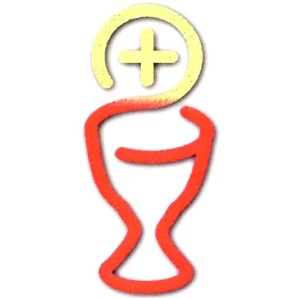One of my favourite mantras used in these monthly articles that carols are not just for Christmas. They are also for Advent, Epiphany, Lent and Easter. I may be stretching a point, but this piece is here in January to represent the flight to Egypt, and the fragility of a new-born baby, sent to be God’s warrior.
“This Little Babe” is one of my favourite movements of Britten’s “A Ceremony of Carols”. Britten composed this collection during a perilous transatlantic voyage in 1942. He had been living in America for three years, but returned to England in order to fulfil an obligation to compose a harp concerto. And that’s how he came to be on board a ship for several weeks with little to occupy his mind other than a couple of harp manuals and a copy of “The English Galaxy of Shorter Poems”, purchased when his ship called at Halifax, Nova Scotia, on the way.
Britten chose the poem “New Heaven, New War” for the text of “This Little Babe”. The poet was Robert Southwell (1561-1595), a Jesuit priest active in England during the reign of Elizabeth I. He was accused of treason, imprisoned, tortured and executed for his connections to the Church in Rome:
This little babe so few days old
Is come to rifle Satan’s fold;
All hell doth at his presence quake
Though he himself for cold do shake;
For in this week unarmèd wise
The gates of hell he will surprise.
With tears he fights and wins the field
His naked breast stands for a shield
His battering shot are babish cries
His arrows looks of weeping eyes
His martial ensigns Cold and Need
And feeble flesh his warrior’s steed.
His camp is pitchèd in a stall
His bulwark but a broken wall;
The crib his trench, haystalks his stakes
Of shepherds he his muster makes
And thus as sure his foe to wound
The angels’ trumps alarum sound.
My soul with Christ join thou in fight;
Stick to the tents that he hath pight
Within his crib is surest ward;
This little Babe will by thy guard.
If thou wilt foil thy foes with joy, then
Flit not from this Heavenly boy!
Written for treble voices singing in three parts (soprano 1, soprano 2, alto), this song is challenging – yet exhilarating – to sing. At 180 beats per minute (that 3 beats per second), it’s fast. The tempo marking is “presto con fuoco”, which means “fast with fire”! The first verse is song in unison, the second is a two-part canon, and the third is a three-part canon. But what is a canon in music? Probably best to start with rounds: many of us will have sung songs like “Row, Row, Row Your Boat” or “London’s Burning” at school. One group sets off, then the next group joins in (singing from the beginning). We did this with “Gin and Tonic” at Rev Deborah’s birthday concert back in April. There’s no limit to how many groups can sing a round. Crucially, each group sings the same melody, with staggered entries planned to generate harmonies between the parts. Singing in canon takes this a step further with longer melodic lines and shorter gaps between each group’s entry.
In “This Little Babe”, the entries are only 1 beat apart. Check back to the previous paragraph. That’s a third of a second between parts. That’s not enough to establish melodic lines and harmonies. Instead the sound generated has more of a ripple effect, and this is what makes it both challenging and exhilarating to sing. The text becomes lost in a cacophony of sound that is perfect for the spiritual warfare that this babe has come to fight.
This is not a sanitised saccharin feel-good carol. And that’s what I like about it. The stable (more likely a cave) was cold, dirty and smelly. Mary gave birth in a cowshed. Her new-born baby was wrapped in rags and laid in a feeding trough where he was no doubt prodded by the noses of curious cows and sheep. And he was here to do a savagely tough job.
There are many recordings of this available online, but I like this one: https://www.youtube.com/watch?v=U_Tux6tixN0
Carol P
